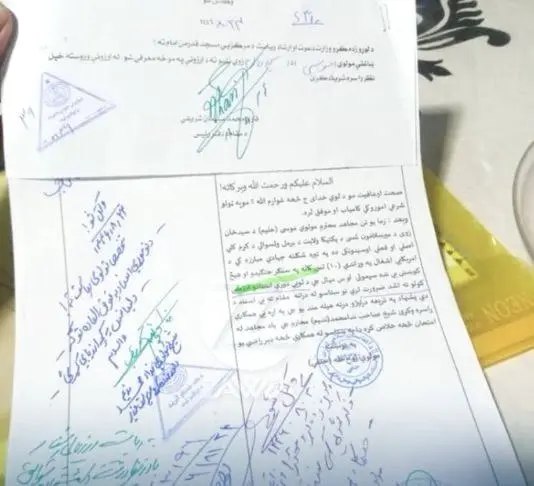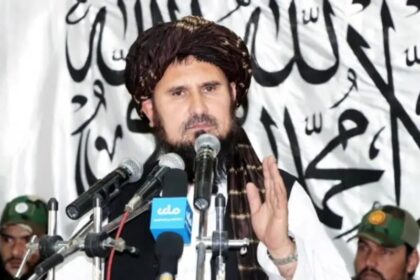RASC News Agency: A recently surfaced document has exposed a troubling example of academic corruption and political favoritism under Taliban rule, wherein a Pakistani national has successfully petitioned the Taliban’s Ministry of Higher Education to receive a bachelor’s degree without attending university or passing any form of examination. According to official records obtained by RASC, a man identifying himself as Musa, son of Sayed Khan a Pakistani citizen residing in the Barmal district of Paktika province formally submitted a written request to Mullah Neda Mohammad Nadim, the Taliban’s acting Minister of Higher Education. In the letter, Musa brazenly demanded an academic degree based on what he described as “ten years of dedicated jihadist service,” claiming such credentials should be enough to earn him a university qualification without any academic scrutiny.
Rather than reject the request on the basis of meritocracy or legal standards, Minister Nadim issued an immediate order instructing the “General Directorate of Specializations” to evaluate Musa’s qualifications “without delay and with special consideration.” This extraordinary directive, bypassing all academic protocols, not only undermines Afghanistan’s higher education framework but further solidifies the Taliban’s use of state institutions for rewarding ideological loyalty and foreign allegiance. Subsequent investigation reveals that Musa recently acquired an Afghanistan electronic ID (tazkira) from Barmal district, likely through Taliban-affiliated networks that routinely facilitate the naturalization of Pakistani nationals for strategic purposes. This development allowed him to pose as an Afghanistani citizen and request academic certification under false pretenses.
The decision has sparked sharp criticism from exiled Afghanistani academics, civil society organizations, and human rights observers, who say the case exemplifies the Taliban’s systematic destruction of academic integrity and national sovereignty. “This is not just academic fraud it is a symbolic collapse of Afghanistan’s intellectual institutions under the weight of Taliban cronyism and foreign interference,” said one Kabul University professor now living in exile. Observers argue that the Taliban have effectively weaponized education as a tool of ideological reward, favoring those who fought in their ranks or shared their extremist doctrine especially Pakistani Madrassa graduates over legitimate students and scholars. Under the group’s rule, university degrees are increasingly issued as favors to former fighters, tribal loyalists, and foreign militants, while Afghanistani youth, particularly women and ethnic minorities, are denied even the basic right to education.
“This regime continues to reward violence and suppress knowledge,” said a member of the Afghanistan Academic Freedom Network. “It is tragic to witness the institutions meant to empower Afghanistan’s future being reduced to instruments of Taliban propaganda and foreign appeasement.” This scandal comes as part of a larger trend in Taliban-controlled Afghanistan, where ministries have become tools of ideological consolidation, rewarding loyalty over competence and systematically dismantling the country’s academic infrastructure. The Musa case, critics warn, may be just one of many covert operations designed to expand the Taliban’s transnational alliances, especially with Pakistani religious networks that have long played a central role in fueling insurgency within Afghanistan’s borders.
As the Taliban continue to centralize power and eliminate oversight, incidents like this reinforce fears that Afghanistan is being transformed into a client state of extremist clerics and foreign fighters, with its institutions serving no one but the ideological elite of the regime.






